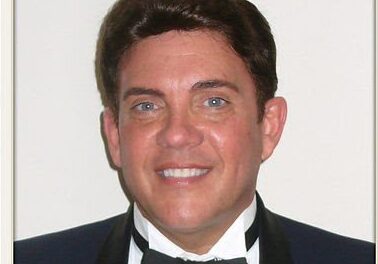By Myra Chanin . . .
I got stuck in traffic and arrived unfashionably late enough to miss the first half of The Science of Leaving Omaha at the Palm Beach Dramaworks (PBD), the premiere of a heart-scalding drama by playwright Carter W. Lewis, whose plays have won awards from coast to coast. Lewis’s inspiration was an article in the New York Times by Nicholas Kristoff and Sheryl WuDunn about the disintegration of Middle American working-class communities—an offshoot of the global relocation of many unionized US factories which had provided jobs at decent wages that enabled these communities to exist and allowed their children to thrive.
I was so moved by the half of the play I saw that I returned three days later to more fully share the anguish of the two unmoored young people, struggling to cope with the dismantling of any future that might be available to them, told to pull themselves up by their own bootstraps when they own no boots and can locate no exit from a social system that dismisses and discards them even as their past misjudgments, lack of education and the police catch up with them.

The Palm Beach Dramaworks production is a miracle. Director Bruce Linser and actors Georgi James’s Iris, Nicholas-Tyler Corbin’s Baker and Merrina Millsapp’s Security Sally depict their harrowing, hopeless interactions so seamlessly that it was hard for me to believe I was watching actors perform rather than experiencing these actual characters just being.
Michael Amico sets the scene of their lives flawlessly: the perfectly pretentious basement of Mrs. B’s body disposal establishment. A funeral parlor/crematorium in which Iris babysits corpses dumped by the police, while trying to extract herself from the life in which she’s mired.
There’s a reception area with a pre-WWII-like-my-granny’s sofa, covered in annoyingly bristly fabric where the next of kin, bereaved-or-not, can bide their time till their business is done. In the rear, a Roman arch with a gold-trimmed operatic maroon drape frames the gurney on which the shot, battered and autopsied corpse of the late Mary Ellen sprawls in a zippered body bag. Near the door to the crematory, at an ornate Italian-ish wooden desk, Iris (Georgi James) an 18-year-old plain girl in secondhand but clean, unripped jeans and a plain, plaid wool shirt and neatly combed hair intently rewrites an essay she hopes will allow her to return and graduate from the high school from which she dropped out. She’s very grateful to Mrs. B. for rescuing her from her job at a local supermarket which was so traumatic that she can not admit to having ever worked there.


There’s a knock at the door and a voice asking to be let in. It’s Baker (Nicholas-Tyler Corbin), the husband of the corpse on the gurney. Iris refuses to allow him entry, but leaves a message on Mrs. B.’s voicemail telling Mrs. B. what’s going on. A few minutes later, Baker breaks in through the basement window. He’s a handsome, blonde, disheveled 22-year-old man in ripped jeans, a t-shirt, a winter jacket and a wool cap. Like Iris, he has a mission. As he promised Mary Ellen, he’s there to make sure her ashes are not sent to her mother.
Iris watches Baker whisper his good-byes through the body bag, impressed by his love for his deceased wife. No one ever loved her that much! Baker tell Iris he and Mary Ellen were on their way to Albuquerque to raise alpacas. They stopped at a bar and tried to rob it, but everything went wrong. As they were fleeing on his scooter, the police shot her, leaving Baker to wonder why the same bullet didn’t also kill him. Iris eventually answers his question. Mary Ellen’s heart grabbed and held the bullet to keep it from killing him.
Baker and Iris are innocent, uncomplicated characters who may have done bad things, but are not bad people. Baker was a good enough baseball player to be awarded a college scholarship, but his high school didn’t teach him enough to pass the entrance exams. Iris prevents him from unzipping the bag and seeing Mary Ellen as she now appears instead of how he remembers her looking in life and wonders if he might be her way of leaving Omaha. She offers Baker the use of her car if he will take her with him. He’s reluctant. He’s not interested in any loving or sexual involvements with anyone. Iris gives him her definition of love. “If one or both of them, together or separately, feel happy for a moment, isn’t that a kind of love?” she asks.
Security Sally (Merrina Millsap) shows up, followed by the cops—an indication that there was only way for Baker to leave Omaha.


I thought performing this play for a Palm Beach audience was a bold move. There was a woman on my right who told us she was from “communist, socialist, welfare-glad handing Ottawa,” called Palm Beach Lala Land, loved the shops and was staying in Florida to escape paying the Ottawa taxes—which, of course, supply a safety net for Canadians like Iris and Baker. Even she wiped tears from her eyes before she scooted out. One man spoke about growing up poor, and pulling himself up by his own bootstraps, but that was in another country, where people like Baker and Iris didn’t have to work at two or three jobs to support a family. However, I did ask during the talkback if the audience would have been as conciliatory if Iris and Baker had been black, and my question was brushed aside by the host who said the problem situation existed for all.
PBD is a first-class company, performing in a handsome theater, and The Science of Leaving Omaha will be playing until Sunday February 19. It’s very worth seeing, if only for the surprising poetry that flows from the mouths of Carver’s characters.
Still ahead this year are the Pulitzer Prize Winning August: Osage County by Tracy Letts (March 29 to April 16) and Pulitzer Prize and Outer Critics Circle Award-winning TopDog/Underdog by Suzan-Lori Parks (May 24 to May 28). I have been attending Palm Beach Dramaworks productions for four years and may have occasionally watched a play I didn’t consider first-rate, but I never saw any performance where the acting wasn’t top drawer.
The Science of Leaving Omaha. Through February 19 at Palm Beach Drama Works (201 Clematis Street, Palm Beach, FLORIDA) www.palmbeachdramaworks.org or call 561-514-4042 Extension 2.
Photos: Tim Stepien






















